The Natural History Museum in London holds a yearly contest for the Wildlife Photographer of the Year. This year, the contest had 49,957 entries from around the world. Here are some of this year’s best pictures, and the stories behind them.
This year’s photographs are amazing in many different ways. Some show dramatic scenes as animals interact. Others present nature in surprising ways. Some just capture a perfect moment.
The grand prize this year was won by Laurent Ballesta of France for his image of a horseshoe crab being followed by three small fish. The horseshoe crab moves around on the sea floor, looking for food. The fish follow along, hoping to eat anything the horseshoe crab misses.
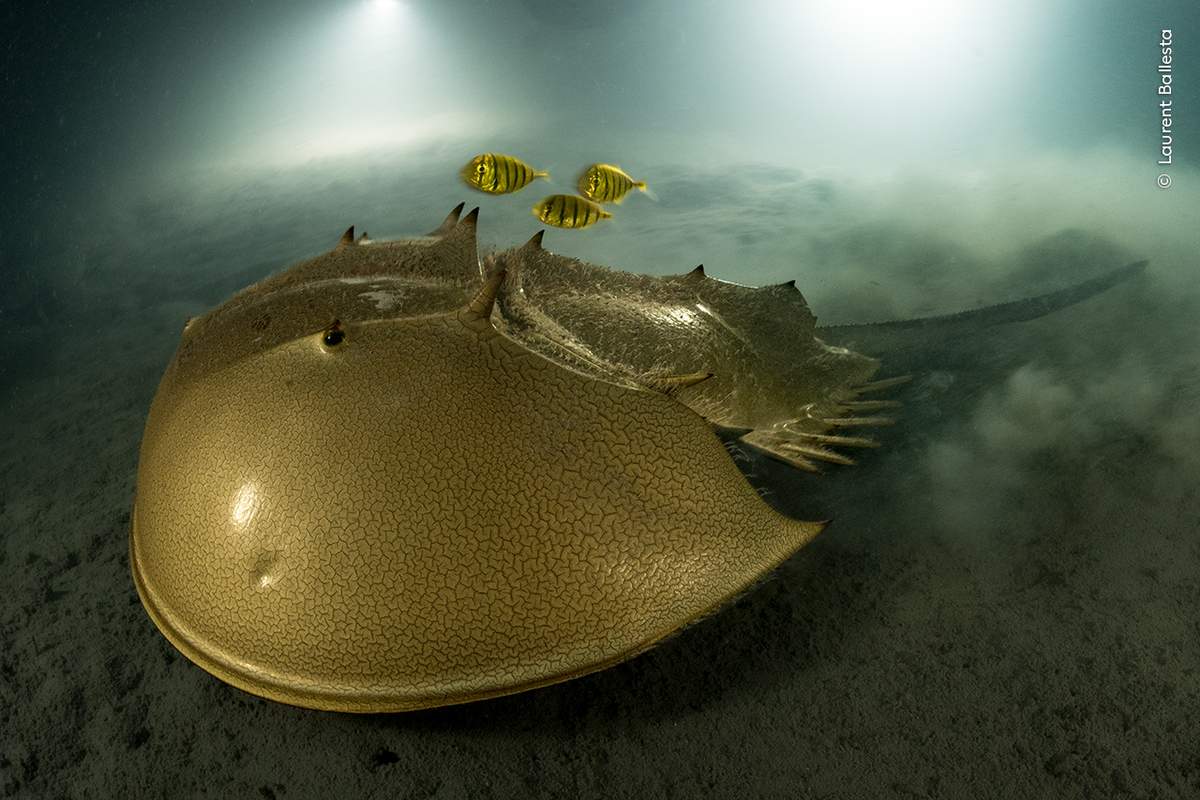
(Source: © Laurent Ballesta / Wildlife Photographer of the Year .)
Tri-spine horseshoe crabs have been around for over 300 million years. But now they’re endangered. That’s because of overfishing, pollution, and the fact that much of the area where they normally live has been lost. Mr. Ballesta took his photo in protected waters in the Philippines.
Agorastos Papatsanis of Greece won the Plants and Fungi award for his picture of a mushroom releasing its spores. Spores are similar to seeds; they can spread easily and create new mushrooms.
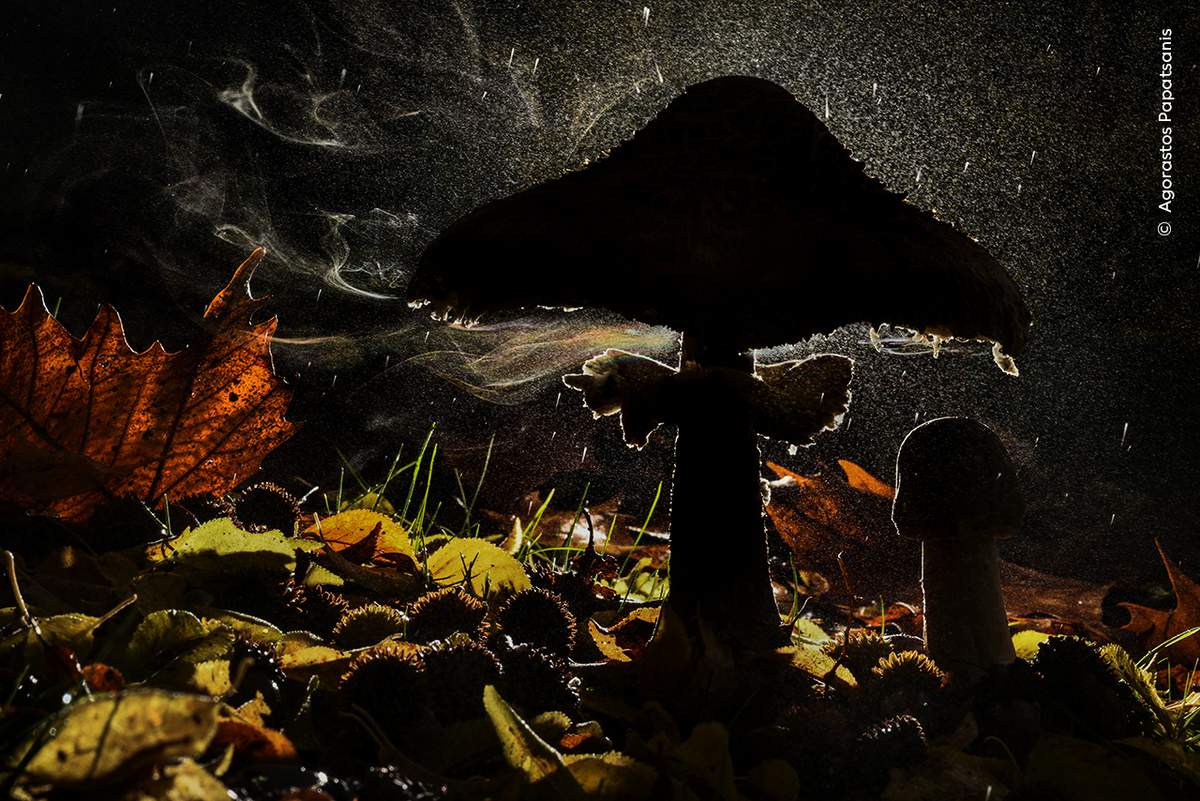
(Source: © Agorastos Papatsanis / Wildlife Photographer of the Year .)
Mr. Papatsanis went out to the forest in the rain to capture his photo. He had to carefully protect his equipment as he waited to snap the perfect picture. One of the judges described his image as a “fairytale scene”.
Bertie Gregory took long boat trips near Antarctica to capture the image that won the award for Mammal Behavior. He spent hours in freezing conditions before finally snapping the photo using a drone. His picture shows two kinds of animals interacting in a way that’s not often seen.
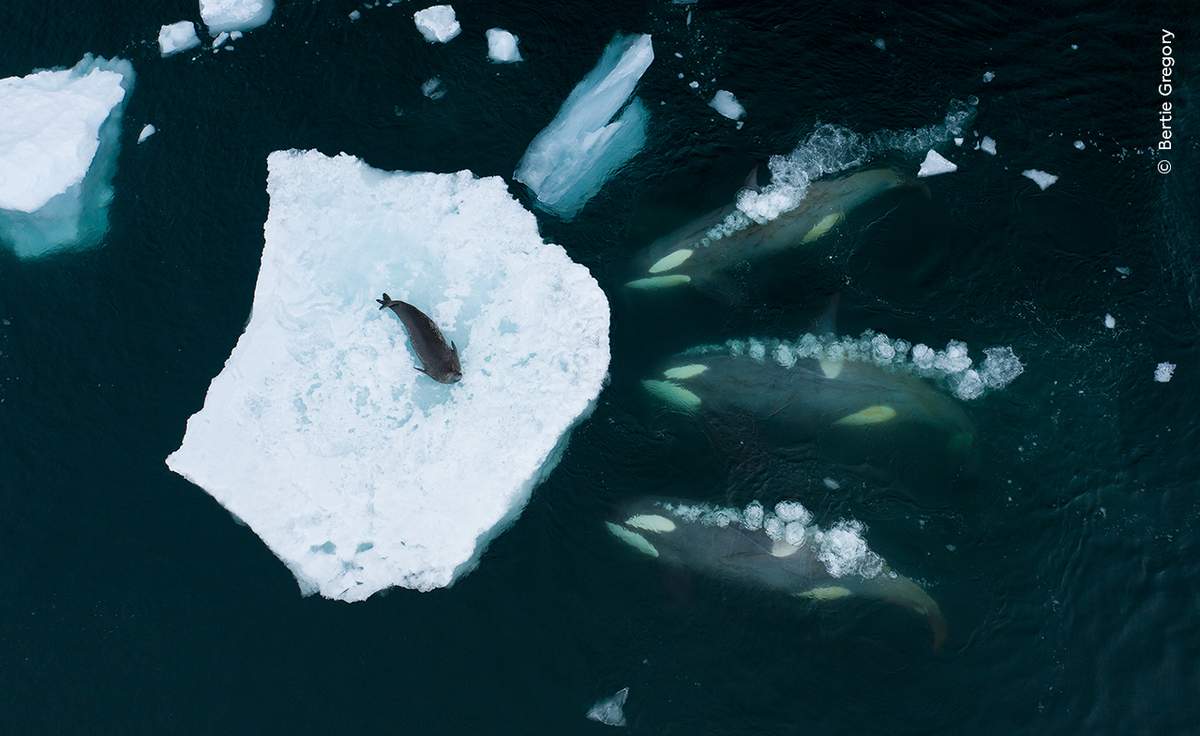
(Source: © Bertie Gregory / Wildlife Photographer of the Year .)
The Weddell seal hopes to stay protected on the chunk of ice. But, working together, the orcas have a trick to force the seal back into the water. They swim rapidly toward the ice all at once, which creates a wave that can wash the seal off.
Sriram Murali won the award for Invertebrate Behavior by combining lots of different images. Mr. Murali lives in India, and he wanted to show the firefly activity in the forest near his home.
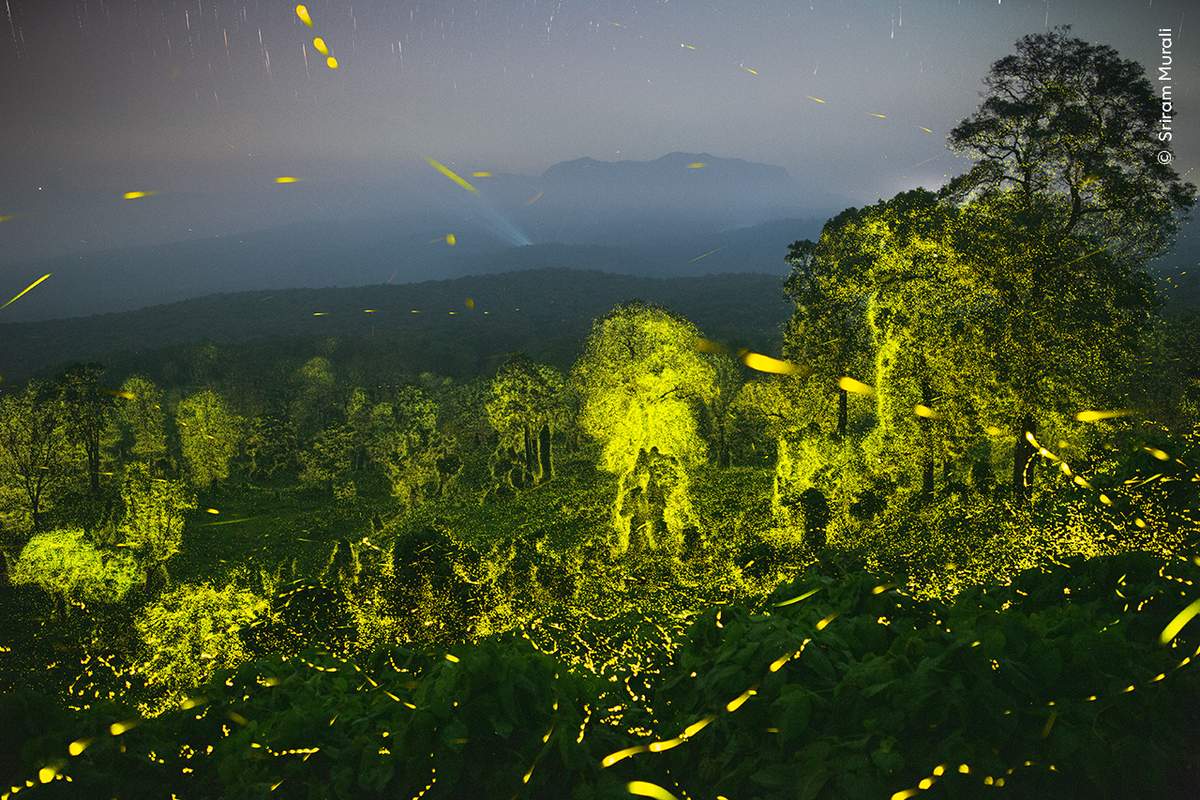
(Source: © Sriram Murali / Wildlife Photographer of the Year .)
Usually, a camera shutter opens and closes quickly. But to create his image, Mr. Murali took 50 pictures, and each time, he left the camera shutter open for 19 seconds. The combined image shows the massive numbers of fireflies in the forest and captures some of their movements.
Young Competition
The Young Wildlife Photographer of the Year is a separate contest for people under 18. The pictures are judged in three separate age groups: 10 and Under, 11-14, and 15-17.
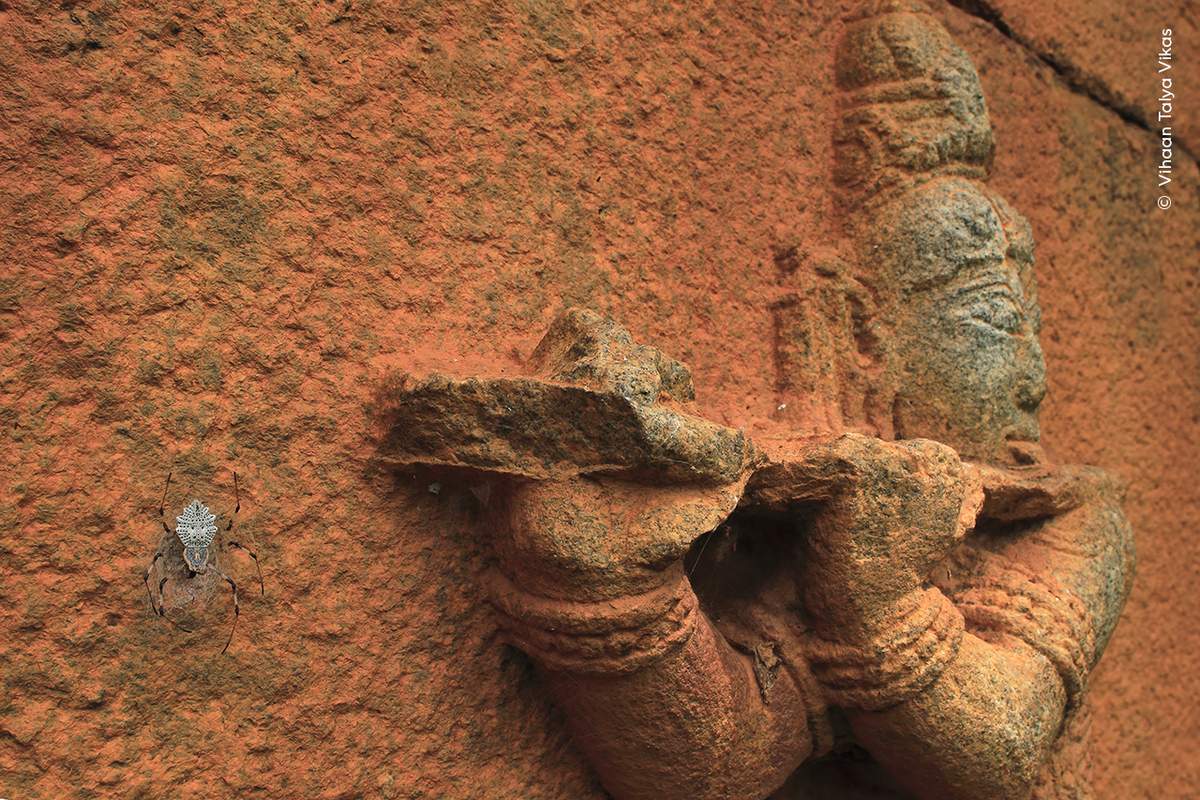
(Source: © Vihaan Talya Vikas / Wildlife Photographer of the Year .)
Ten-year-old Vihaan Talya Vikas of India won the 10 and Under prize for Young Wildlife Photographer of the Year.
Vihaan was at a temple near Bangalore, when he spotted this ornamental tree trunk spider trapping its prey. The spider was on a wall that had a sculpture of the Hindu god Krishna playing a flute. Vihaan liked the way the spider seemed to be listening to the flute.
Did You Know…?
Wildlife Photographer of the Year is developed and produced by the Natural History Museum, London. The museum will be accepting photos for next year’s contest until December 7. If you like to take pictures of nature, it’s time to get busy! Even if you don’t take pictures, you may want to have a look at more of the amazing photos.
